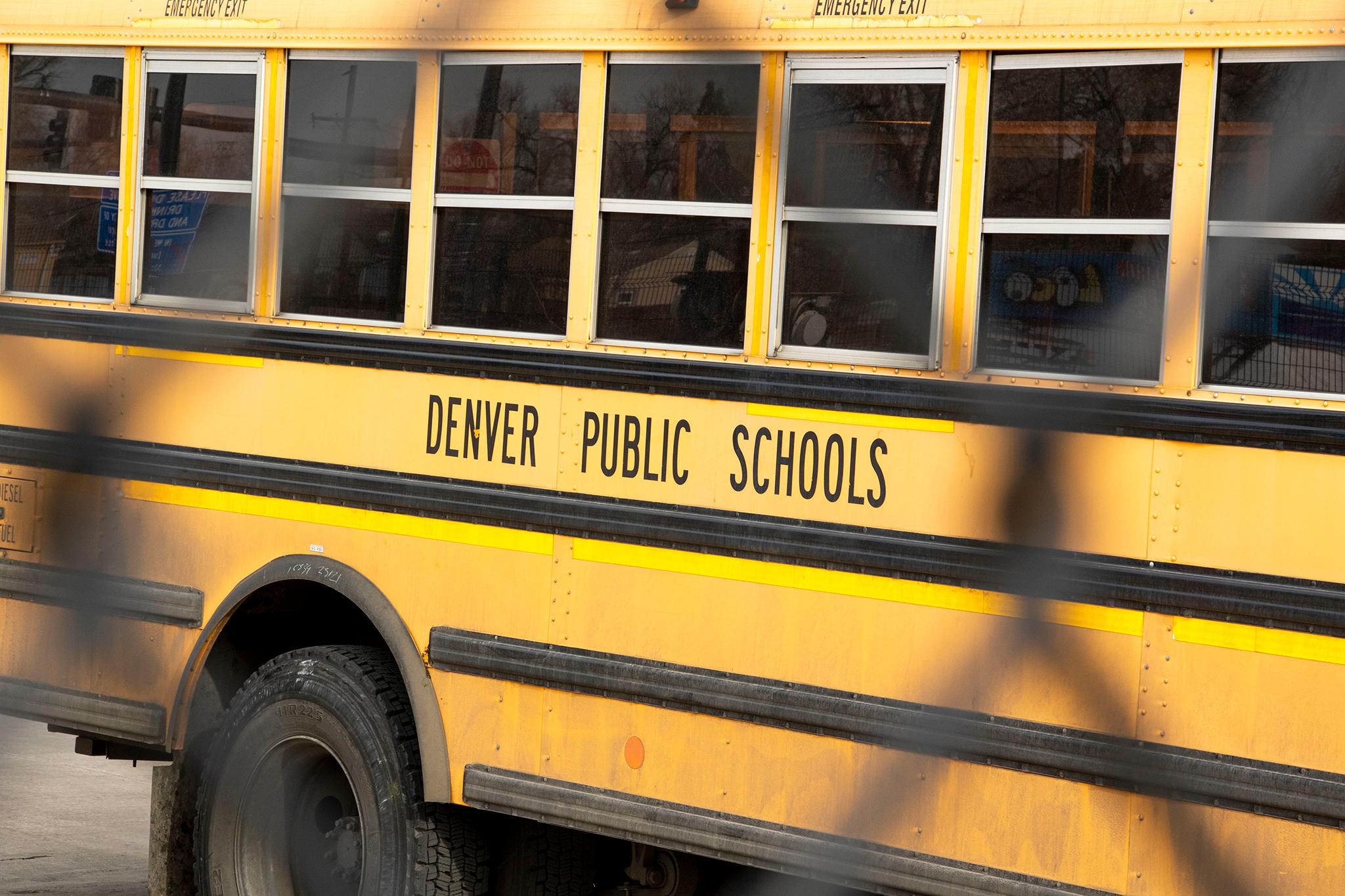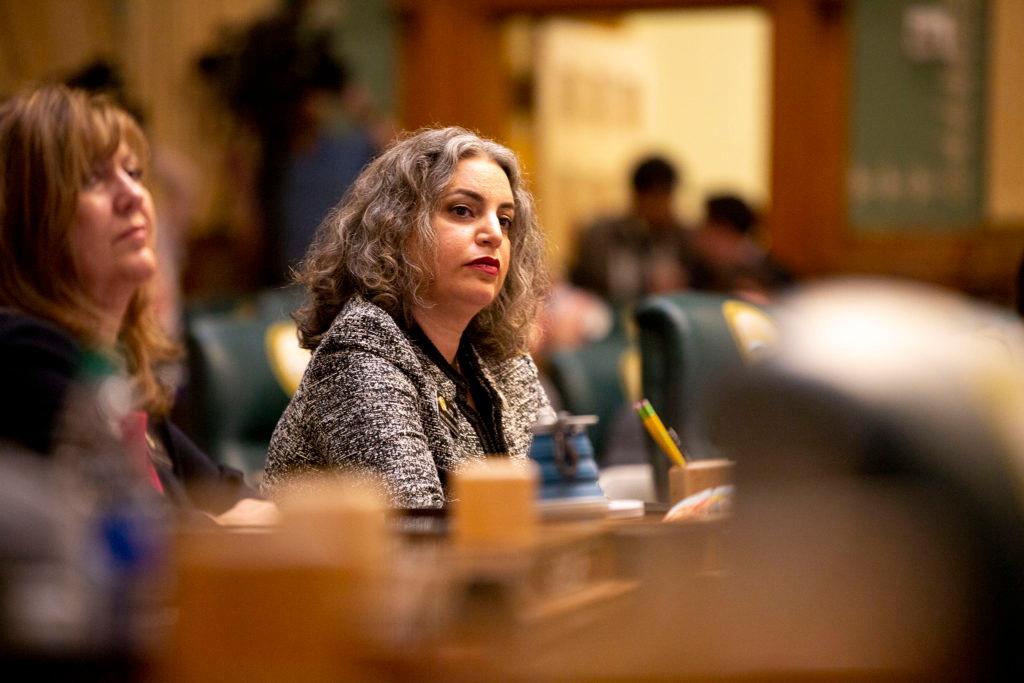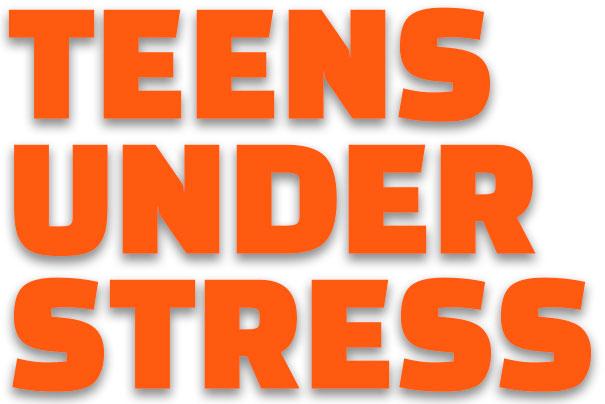
When Amy, a 16-year-old from Thornton, began to struggle with depression, she found herself alone with it.
“I missed a lot of school, like a few months of school, because of depression. I tried getting help, but my mom said, ‘You don't have a reason to be depressed,’” Amy told lawmakers at a hearing last winter. “So I kind of stopped trusting her and wouldn't tell her anything.”
She wasn’t 15 yet, old enough to access mental health care without parental permission, so she was stuck.
Many teenagers have found themselves in this situation, she said.
“There's a lot of parents out there that don't want their kids to get the help they need,” Amy said.
Stories like hers drove lawmakers to pass a law last session that allows students as young as 12 years old to get mental health services without parental approval.
Many school districts in the state have taken the opening to lower the bar to accessing mental health services. Suicide was the leading cause of death for young people between 2013 and 2017 in Colorado.
But others, including Denver Public Schools, the state’s largest school district, haven’t followed suit. In Denver, students below the age of 18 years old still need parental permission, and other districts say the law is causing confusion.
Putting power in the hands of youth
Rep. Dafna Michaelson Jenet, of Adams County, sponsored the bill. She was motivated by her own son’s struggles. He began having suicidal thoughts at six, and other parents had similar stories.
“We were hearing here in Colorado of 10-year-olds dying by suicide, of 9-year-olds dying by suicide,” she said.
She saw that middle schoolers needed to have a safe person to talk to. They were between 12 and 14, an age filled with inner turmoil. If they couldn’t talk to their parents, they had no one.
As part of our reporting for Teens Under Stress, young people have told us they often lack the mental resources they need. One in four Colorado middle schoolers say they don’t have or don’t know if they have a trusted adult in their lives.
“Giving our youth that right to consent to care is putting power in their hands to get the help that they need,” Michaelson Jenet said.
At that time, only students 15 or over could get mental health without parental consent. Suicide is the leading cause of death for young people in Colorado and So Michaelson Jenet decided to sponsor a bill to lower the age of consent to 12.
At hearings for the bill, teenagers testified about the dangers of requiring parental permission.
“I'm here because I've had so many friends in and out of hospitals because of their mental illness with unsupportive parents and no one to turn to,” said 17-year-old Alyssa, with Project We Care Colorado, a teen-led mental health organization.
“I have attempted suicide myself. The first time I was 12 years old because my parents would not allow me to go to therapy,” said Tenley, who said she was from a rural community. “They said I didn't need it. If I had the cognitive ability to realize that I wanted to take my own life at 12 and that I needed help, I should have gone to get that help myself. I just was not lucky enough to have my parents sign off on it and it hurt.”
Becky Zal-Sanchez, a social worker in schools in the Denver area testified that she reaches out to parents, especially for kids who are not 15 yet “over and over again and people don't call me back.”
The bill became law with some caveats. The licensed mental health provider or social worker must talk to the student about the importance of involving and notifying parents. And they must tell parents if the student communicates a clear and imminent threat to complete suicide.
If you need help, dial 988 to reach the Suicide and Crisis Lifeline. You can also reach the Colorado Crisis Services hotline at 1-844-493-8255 or text “TALK” to 38255 to speak with a trained counselor or professional. Counselors are also available at walk-in locations or online to chat.
Some districts changed their age of consent in the months after the bill passed.
Aurora, Mesa County Valley 51, Cherry Creek and 27J — which spans Adams, Weld and Broomfield counties — all changed the age of consent to 12 years old.
One district stands out for their much older age of consent: Denver Public Schools. Students need parent permission until they’re 18.
“At this time we're following concurrent protocol: Parents must provide consent for counseling services provided by DPS, school-based mental health providers,” said Ellen Kelty, the director of student equity and opportunity of the largest district in the state.
That includes school psychologists, social workers, and interns who provide psychological care. She said, however, if a student was suicidal, they would be seen without parent permission.
The district also has about 17 schools that host health clinics run by Denver Health. Kelty said parents typically sign off on consent at the beginning of the school year before their children can access any services at Denver Health’s school-based clinics.
After they have consented, only students 15 and over can access mental health services at the school-based clinic without a parent’s signature, said Jade Williamson, DPS’s Manager of Healthy Schools.
“This new law affords us the opportunity to explore more deeply the mental health services we provide to students,” Williamson said.
Originally, the district told CPR that the 18-year-old provision was a policy of Denver Health. But the health organization said that wasn’t the case. In fact, at its clinics outside schools, in cases where the law allows, it follows the new 12-years old and up policy. For its part, Denver Health says it’s open to a change,
“We live in a very different society than we did 30 years ago when we opened that first school-based health center,” said Denver Health’s Jackie Zheleznyak. “We appreciate the relationship we have with DPS and we love being let into their space. We still want to continue to be there if there's discussion of changing how and who we care for, with or without parental consent, based on what statute is in place at the time. We’re very open to those conversations.”
The district also cited the Family Educational Rights and Privacy Act, or FERPA, a federal law stating that parents have the right to their students' educational records and the right to consent in a school setting. Other districts did not see that as a barrier.
DPS’s Kelty said the district’s legal team was reviewing the law and would consider updates to the policy.
DPS has increased the number of psychologists and social workers 96 percent in the last five years up to 317 full-time positions, Kelty said. The issue of 12- to 14-year-olds who want mental health services and are reluctant to tell their parents doesn’t come up anywhere near as often as people think it does, she said.
For Rep. Michaelson Jenet, a single child unable to get mental health services because a parent won’t give permission or doesn’t believe their child has a problem is one child too many.
“It’s really distressing, especially during a mental health crisis,” she said of DPS’s policy.

But other districts say the law is causing confusion for them as well.
Some Adams County districts thought the health provider that works in their schools, Community Reach, had an age of consent of 15. The CEO for that provider, Community Reach’s Rick Doucet clarified that it’s not.
“For us, the age of consent is the age of consent,” he said. “It was 15 before and now it’s 12. That’s the law for us.”
But even he said it’s not so easy. If a 12-year-old tries to go to an outside clinic, they often need insurance, which would require parental notification.
“Without a funding source, it’s going to be hard for a 12-year-old to be seen,” Doucet said.
Other districts say since the law specifies “psychotherapy,” it’s not clear whether more basic school-based mental health services are included.
The result is a patchwork of age limits, with each district making a different assessment of what’s allowed. In Jefferson County schools, for example, students of any age can receive services, like preventative services or group counseling for behavior support. But community partners such as the Jefferson Center for Mental Health provide what the district sees as “psychotherapy” under the law.
There have been an estimated 20 requests for services from young teens between 12 and 15 since the law went into effect, JCMH’s chief operating officer Lenya Robinson said.
“We evaluate those to ensure that they meet the definition of the new minor consent age,” Robinson said. “We want to make sure this isn’t an effort to bypass parental involvement where parental involvement is necessary.”
Rep. Michaelson Jenet isn’t happy with the patchwork that resulted from last year’s law.
She hopes to clarify the law this session so districts cannot opt out of getting mental health services to anxious or depressed teens over 12.
“Therapy helps,” Michaelson Jenet said. “This is where you learn coping skills. This is where you learn how to overcome these challenges. This is where you learn the language to be able to communicate to your parents clearly what help you need and what's going on.”
But communities’ right to local control and the realities of school resources may hamper her efforts. Jennifer Mueller, chief legal counsel and general counsel for the Colorado Association of School Boards, said everyone wants to ensure students can get mental health support when they need it. But what’s unclear is how that looks in different schools given the available resources and whether it can be mandated by the legislature.
“We want to support students but do schools have the capacity and resources to do it, and how does it work with parents who have the right to know what is happening to their children in an educational setting?” Mueller said.
For example: “If you’re going to mandate it, what if a school doesn’t have those particular mental health services?”
Each school district is different in how they structure and define their mental health services, how students access those services and what is communicated to parents, Mueller said.
That makes stricter rules that require all districts to provide care to 12-year-olds challenging, Mueller said. To boot, she said some school districts may still take the position that consent is needed from parents — no matter how old the child is.










